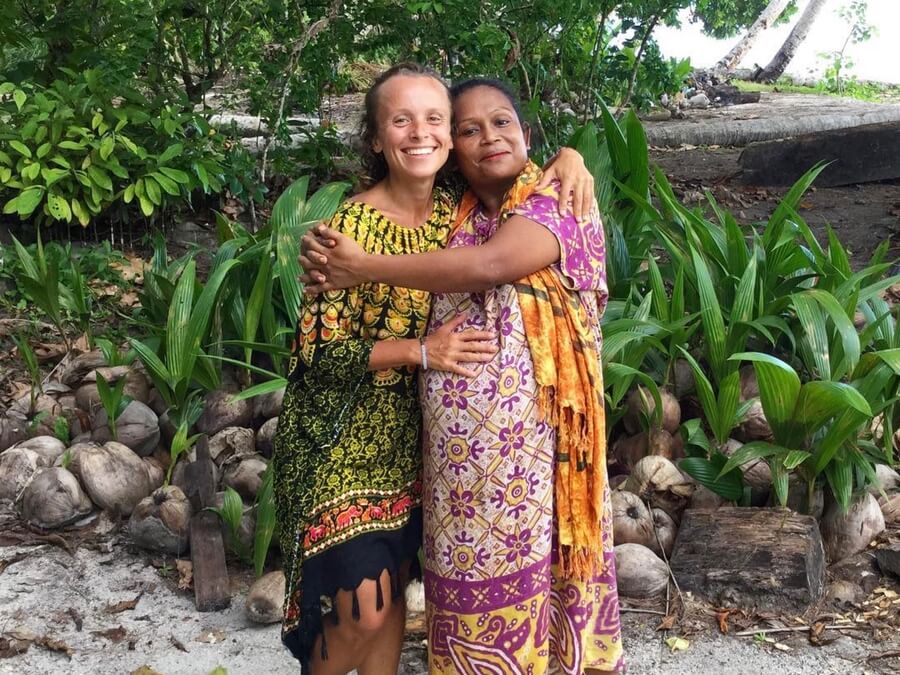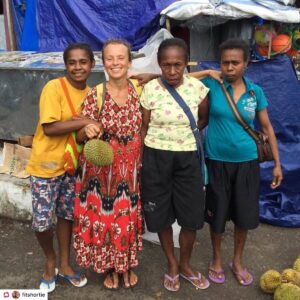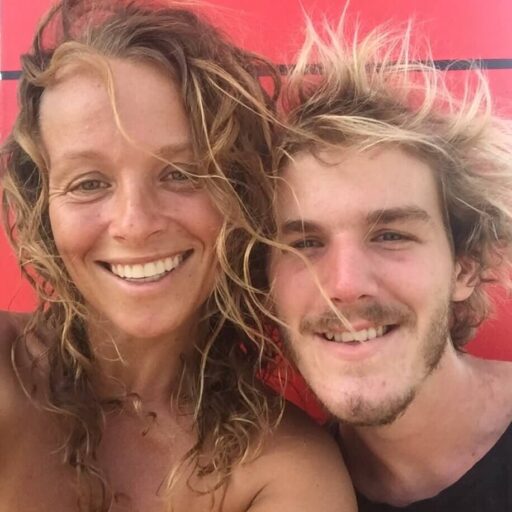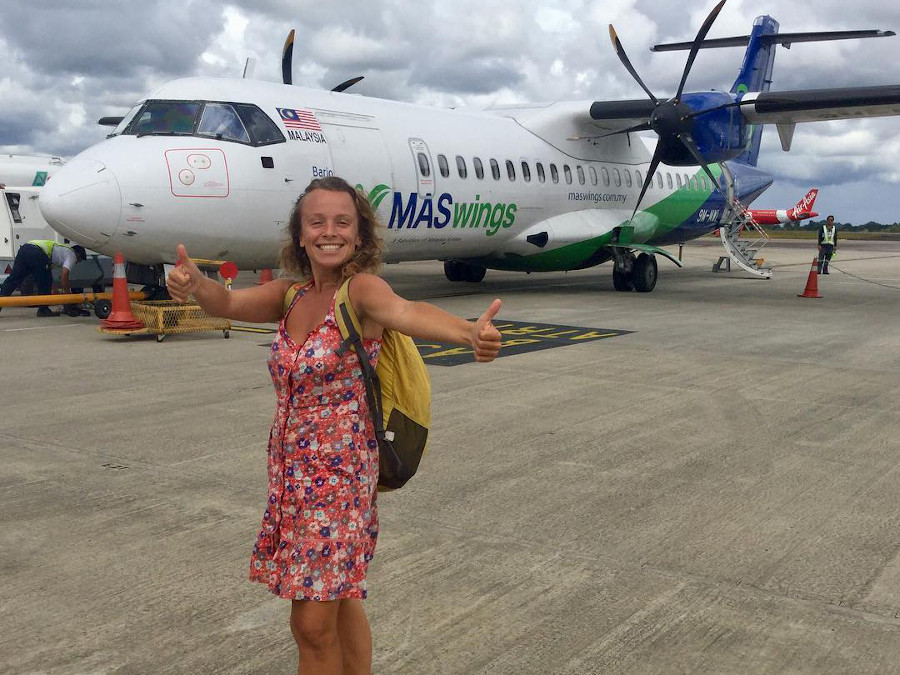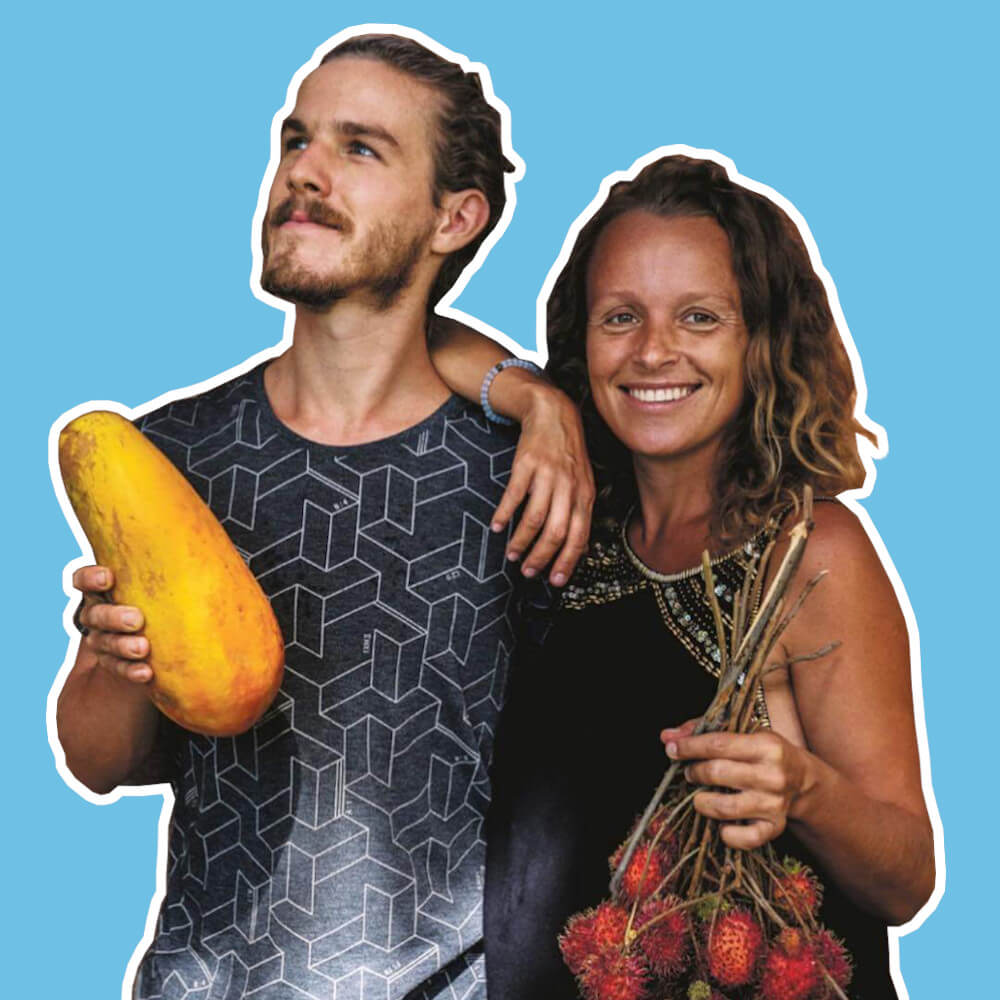Experience
Before this blog post we want to let you know our brand new 160-page eBook is out. Tina wrote this masterpiece about self-love, overcoming eating disorders, weight loss and following your highest excitement. If you are interested you can find more information right HERE.
If you are new here we are Simon and Tina from Fit Shortie. We have been traveling to super remote places like the Maluku islands, West-Papua, Kalimantan, Sumatra, Mindanao and many more for the last 5 years and we are documenting everything on our instagram @fitshortie and our YouTube channel Fit Shortie.In this post we will explain to you how to learn a language fast and speak with the local people within a few months!
Even though everyone calls ‘Hello Mister’ after us and beyond the occasional ‘how are you?’, we were not able to get much further than this in English in West-Papua. Yes, there is no differentiation for gender there. Both Chippy and myself are ‘Misters’. When one of our friends heard we were going to West-Papua she said ‘oh, you’re gonna improve your Indonesian Bahasa very fast’.
How to learn a language fast
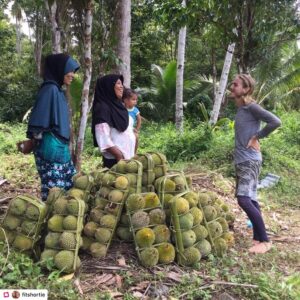 She was right. It is absolutely essential that you speak the local tongue. How else are you gonna find a homestay for the night in a village with no lodging? Or enquire about the origin of the fruits (as we are both on a fruitarian diet)? I have to say I haven’t been as excited about learning a language ever since I mastered entire menus in Italian to get the full experience of eating out in Tuscany.
She was right. It is absolutely essential that you speak the local tongue. How else are you gonna find a homestay for the night in a village with no lodging? Or enquire about the origin of the fruits (as we are both on a fruitarian diet)? I have to say I haven’t been as excited about learning a language ever since I mastered entire menus in Italian to get the full experience of eating out in Tuscany.
The way we learn Indonesian is simple, usually with Google Translate. Once in a while we’ll find someone who speaks both English & Bahasa and I’ll drill them with thirty to forty new phrases. I then write them down in our booklet and learn a few phrases a day. Over time we learn how to pronounce certain words and how to create decent sentences. Other times a phrase is repeated to us over and over again like ‘masak di pohon’ (soft on the tree) so we’re curious to look it up.
Indonesian Bahasa is super easy to learn. It is pronounced exactly as it’s written (good for google translate) and the differentiation between past, present and future tenses comes from context. One word can be used for many things. ‘Jalan’ can mean walking, a walk, travel or a road. Creating plural is a piece of cake too. ‘Buah’ is a specific fruit. ‘buah buahan’ means fruits in general. Interestingly, the descriptive adjective comes after the noun. So ‘pohon besar’ means big tree but its in the order of ‘tree big’. Similarly ‘duren enak’ (tasty durian) is actually ‘durian tasty’. By talking (or at least trying to talk) the language every single day without exceptions you will master the language in no time.
Learn the language whilst traveling
They asked us 3 questions
The context of our conversations in South East Asia is an art form in itself. When we first arrived in Bali, we were surprised everyone asked us the same three questions. The first one ‘Where are you from?’ Is easily explained. It serves as a conversation starter, much in the same way in the US everyone will ask you ‘how are you’.
The next two commonly asked questions seemed a bit nosy at first: ‘Where do you stay?’ and ‘Where are you going?’. Staying in Ubud at the time where everyone is a taxi driver and every family has a homestay and coming from a Western way of thinking where everything is profit-oriented, my bad! I thought everyone was trying to push us some kind of deal. However, even when we travelled to places that were miles away from the nearest homestay or taxi, everyone was still asking us the same three questions. To much extend, it wasn’t just Bali, but we received the same questions wherever we travelled in SE Asia!
What they mean?
It wasn’t until someone who had lived in Bali for many years explained to me that the questions originated long before the first tourists came to Bali. Back in the days when Bali was just jungle and villages. Having a communication network was crucial. So when you’d meet someone, the first question you’d ask is ‘where are you from?’. This is essentially a question about your PAST and gives the person asking an insight into your upbringing, background and family.
The next question, ‘where do you stay?’, is a question about your PRESENT. Your answer to this question reflects on your marital & material status. So if it slips out you’re staying in the fanciest place in town, don’t expect to bargain down to the lowest possible price!
The last question, ‘where are you going?’ is a look into your FUTURE and should be interpreted quite literally. But isn’t it all so philosophical at the same time? It’s also the most useful question. Depending on where you’re going, the person asking could give you a message or an item for you to give to someone at your destination. They could offer you company, transport, travel advice, homestay suggestions, anything really! Sometimes it gets tiring answering the same questions all day long with everyone being so friendly. I guess it’s as much a part of living in Asia as fried rice for breakfast (bleh!).
Let us know
Did this answer your ‘How to learn a language fast in 6 months?’ question, let us know in the comment section below! Do you have tips for our readers on how to learn a language fast, please share them as well!
If you want to receive an automatic update whenever we post a new blog post, go to the comment section below. Before submitting your comment make sure to check the checkbox labelled ‘Notify me of new post by mail’.
